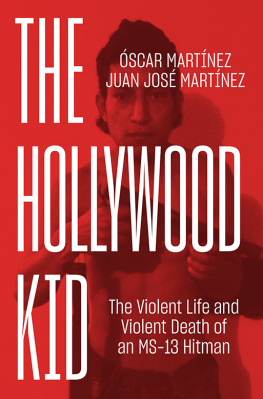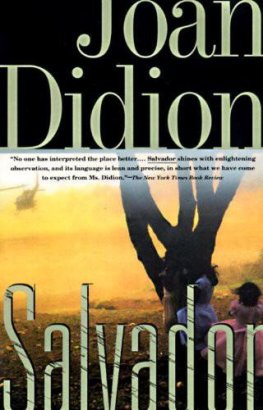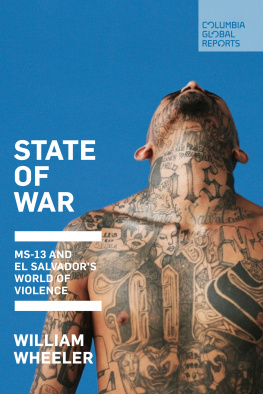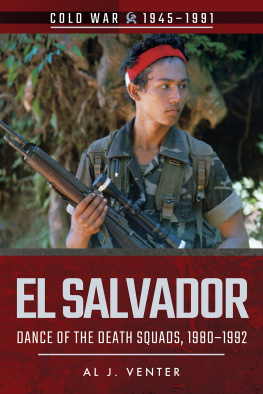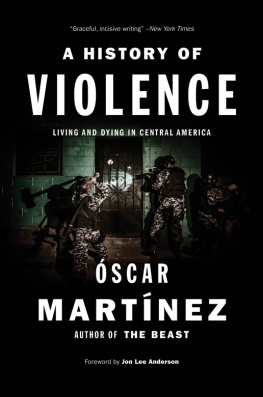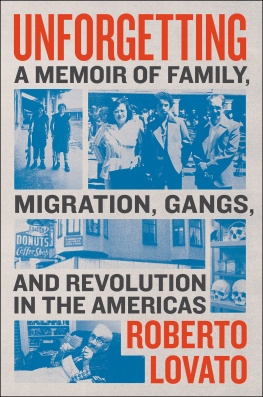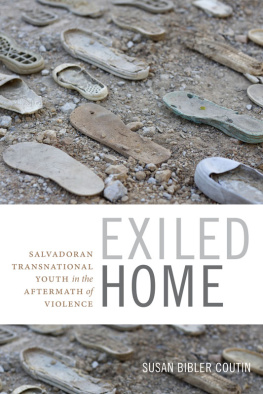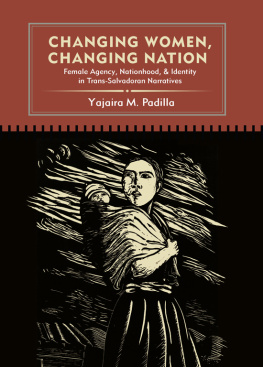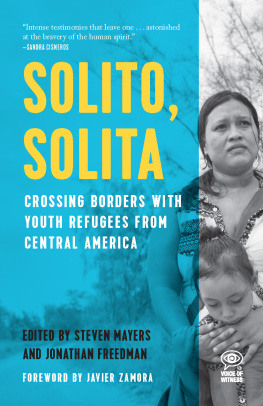Contents

The Hollywood Kid
The Hollywood Kid
The Violent Life and Violent
Death of an MS-13 Hitman
scar Martnez
and
Juan Jos Martnez
Translated by
John B. Washington
and
Daniela Ugaz

First published in English by Verso Books 2019
First publised as El Nio de Hollywood
Debate 2018
Translation John B. Washington and Daniela Ugaz 2019
All rights reserved
The moral rights of the authors have been asserted
1 3 5 7 9 10 8 6 4 2
Verso
UK: 6 Meard Street, London W1F 0EG
US: 20 Jay Street, Suite 1010, Brooklyn, NY 11201
versobooks.com
Verso is the imprint of New Left Books
ISBN-13: 978-1-78663-493-1
ISBN-13: 978-1-78663-492-4 (US EBK)
ISBN-13: 978-1-78663-491-7 (UK EBK)
British Library Cataloguing in Publication Data
A catalogue record for this book is available from the British Library
Library of Congress Cataloging-in-Publicatiovn Data
A catalog record for this book is available from the Library of Congress
Typeset in Fournier by MJ & N Gavan, Truro, Cornwall
Printed and bound by CPI Group (UK) Ltd, Croydon CR0 4YY
To Edin, with love and gratitude.
You said we were extensions of you. So this book is, in part, written by you. You live on within us, Dad.
To Marisa, the best place, the best place in the world.
All our lyrics are yours, Mom.
Contents
This is a book about scraps. Its about those leftovers that the enormous machinery of the United States chucks across its borders. Scraps are tossed into El Salvador, a country that grinds up much of what it receives. These human leftovers, however, are still living when theyre expelled. And, in time, they bear fruit that will clog up the gears of both the machine that threw them out and the machine thats grinding them up. This book is about how these two countries deal with the scraps.
Miguel ngel Tobars story is a microhistory, a perfect example of the human cost of these international processes. Miguel ngel was a sicario, a ruthless assassin for the Mara Salvatrucha 13 gang, a.k.a. MS-13. With more than fifty murders to his name, he might have become an underground celebrity in the United States, part of that club of serial killers who occasionally become fodder for the History Channel. But his life and crimes were committed in another part of the world, in a remote, hot and humid corner of western El Salvador. He didnt speak English, never set foot in LAwhere the gang he belonged to was foundedand never was even able to pronounce the name of his clique correctly: Haleewoo, he would say, meaning Hollywood. And yet, what transpired in the United States would mark both his life and those whose lives he ended.
We met Miguel ngel by chance while working for the online magazine El Faro on a story about gang leaders and organized crime. The police detective we were in contact with, Gil Pineda, speaking to a junior officer, uttered a phrase one day that inadvertently launched two years of research. Bring in the Kid! Pineda said. Shortly thereafter, a thin slant-eyed young man wearing a large t-shirt and a Rastafarian hat appeared in the doorway. He wasnt much like the gangsters the media outlets might have led us to expect: a shaven-headed man with face tattoos. After shaking hands with him, we walked across the street and sat on plastic chairs outside his little shack. We talked for hours. He told us about his life, told us about the times hed been a scared little kid trying to kill grown men. We met Lorena, his wife, and Marbelly, his undernourished daughter. From that day on, we kept visiting him. We went through his stories and compared them to details we gleaned from other sources: police reports, archives, other gang members, and ex-gang members, as well as from cops, judges, prosecutors, family members, victims, and forensic scientists. Even after he abandoned the little shack the state had given himas part of a witness protection dealwe kept in contact, watching him try to forge a life in the sugarcane fields, fighting, hunting, and generally scrabbling away in order to survive. We got to know him as he grew unhealthily thin and, still the states protected witness, he became so desperate he considered going back to robbing and killing in order to feed his family.
Over time we came to understand that Miguel ngels life revealed so much more than the difficulties of a single former gang member. To tell the story of an assassin, its not enough to say when he pulled the trigger or where he was born. Over months and years, we came to realize that this mans life had been shaped by global politics. We came to understand that his choices, his personal agency, had always been limited, always tied to distant decisions made by US and Salvadoran politicians.
The life of Miguel ngel was always constrained, always more a matter of compulsion than choicethough he didnt understand the forces working on him. He was the product of a long series of violent acts. Which is why some chapters of this book begin with events decades before his birth or thousands of miles north of where he came into the world. His ignorance of these forces left him both nave and superstitious. Miguel ngel was also the victim of malicious plotting. He was a scrap picked up by a criminal organization made up of other scraps.
A portrait of anyone, if done well, is a complex matter, comprising many shades and subtle nuances. Sometimes, Miguel ngel acted reflexively. Sometimes, he seemed to have lived more than one life. All the while, he had original ideas and opinions about his condition and what had affected various aspects of his life. Amid the violence, in the center of his various survival strategies, he was always sincere. Although he easily could have, Miguel ngel never lied to us. Or at least we never found out that he was lying. We corroborated one after another of his stories. Even when what he was telling us seemed impossible, we kept finding some document or testimony that backed up the assassins word. Were still asking why he was so honest. Miguel ngel never requested money or help. He never asked us for a single favor. He just talked. For three years he answered every question we put to him. On one occasion, he walked two hours through enemy territory, armed with a machete and a homemade shotgun, just to speak with us. He told us of his childhood and his past with both passion and detail. He talked to us of his hopes, his nightmares, his strategies, his failures, and of his worldview as a rural gang member. It took yearsand a lot of patiencefor us to understand his story, which is why we are now driven to retell it.
It would have been illuminating to see this mans life from afar, as if through binoculars. That viewpoint would have been compelling: bloody murders, shady rituals, machetes, pistols, bullets, and mortal wounds. Its what our country, El Salvadorthe most murderous country in the worldis known for. But we decided to see it through a magnifying glass: To walk in his tracks, to follow his lead, and to probe into his violent realm. Because explanationsnot justificationsare in short supply in this part of the world.
The idea that wetwo brothersshould join forces as coauthors came about not only as a way to consolidate our knowledge of certain phenomena and sociocultural processes that weve been focusing on for the last ten years. It was also a means to unite methods of workethnography and reportagein order to better understand our reality. We have both been, from separate intellectual trenches, committed to understanding the roots of the violence in our country. We have both carefully studied MS-13. We have spoken with dozens of its members, followers, enemies, and victims; we have lived with them for more than a year; we have spent long hours with them in the inhumane prisons of Guatemala, El Salvador, Honduras, Mexico, and the United States; and we have accompanied them as they sought to escape the violence by fleeing through Mexico and into the United States. We worked separately until, one day, we were together and met Miguel ngel in a village called El Refugio. Since then, we have returned dozens of times to that village, as well as to the places where he killed and where, eventually, he was himself killed.

